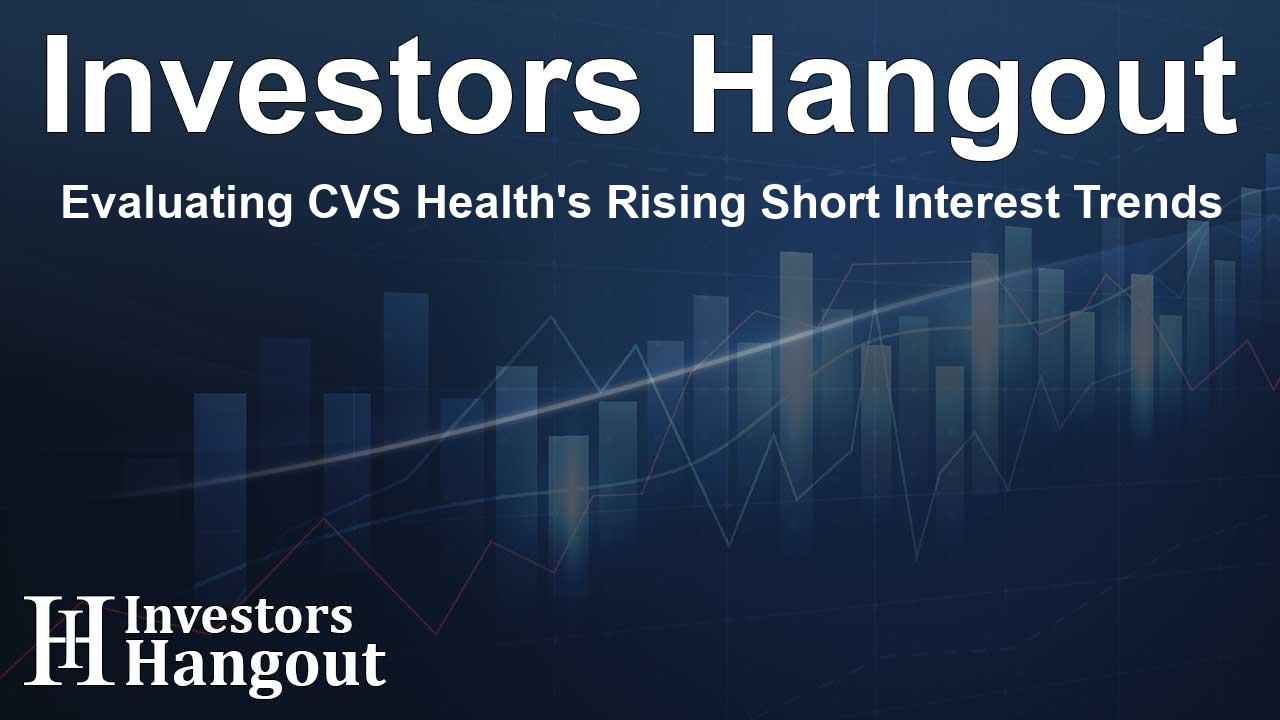Evaluating CVS Health's Rising Short Interest Trends

CVS Health's Short Interest Overview
CVS Health's short percent of float has seen an increase of 5.45% since the last reporting period. Recently, it was revealed that the company has 21.85 million shares sold short, equating to 1.74% of all the regular shares available for trading. Given the trading volume dynamics, it is estimated that it would take approximately 1.75 days for traders to cover their short positions.
Understanding the Significance of Short Interest
So, what exactly is short interest? It refers to the total number of shares that have been sold short but remain uncovered. Short selling is a strategy used when traders sell shares they do not possess, betting on the idea that the share price will drop. If the stock price declines, they can buy back shares at a lower price, reaping profits, whereas a rise in price results in a loss.
Why Track Short Interest?
Monitoring short interest is vital as it offers insights into market sentiment surrounding a specific stock. For instance, an uptick in short interest often indicates that investors are becoming more bearish about a stock's future prospects, while a decline suggests rising confidence among investors.
Recent Trends in CVS Health's Short Interest
The data indicates that CVS Health's short interest has increased since the latest report. While this trend does not guarantee an imminent drop in the stock's price, it’s essential for traders to note the growing number of shares being shorted.
Comparative Analysis with Peers
Analysts and investors frequently engage in peer comparisons to evaluate a company's performance relative to its competitors. To find a company's peer group, one can reference filings such as its 10-K or conduct a similarity analysis based on various factors like industry, size, and financial structure.
CVS Health Against Its Peers
The average short interest for CVS Health’s peer group stands at 8.23%, indicating that CVS Health currently has less short interest compared to its counterparts. Interestingly, rising short interest may at times indicate a bullish sentiment for a stock if short sellers are caught in a squeeze. This phenomenon tends to drive prices higher, and can be an intriguing subject for traders looking to capitalize on market movements.
Conclusion
In summary, while the short interest for CVS Health has increased, particularly in the past few months, it is essential to consider other factors and market conditions. Understanding the intricacies of short selling and investor sentiment can empower traders and investors to make more informed decisions.
Frequently Asked Questions
What does an increase in short interest indicate?
An increase in short interest may suggest that investors are becoming more bearish about a stock's future performance.
How does CVS Health's short interest compare with its peers?
CVS Health's short interest as a percentage of float is lower compared to its peers, which average 8.23%.
Why is short selling considered risky?
Short selling carries significant risk as potential losses are unlimited if the stock’s price rises significantly.
Can rising short interest be a good sign?
Yes, rising short interest can sometimes indicate bullish potential, especially if short sellers face a short squeeze.
How do traders cover their short positions?
Traders cover short positions by buying back the shares they borrowed to sell short, ideally at a lower price.
About Investors Hangout
Investors Hangout is a leading online stock forum for financial discussion and learning, offering a wide range of free tools and resources. It draws in traders of all levels, who exchange market knowledge, investigate trading tactics, and keep an eye on industry developments in real time. Featuring financial articles, stock message boards, quotes, charts, company profiles, and live news updates. Through cooperative learning and a wealth of informational resources, it helps users from novices creating their first portfolios to experts honing their techniques. Join Investors Hangout today: https://investorshangout.com/
Disclaimer: The content of this article is solely for general informational purposes only; it does not represent legal, financial, or investment advice. Investors Hangout does not offer financial advice; the author is not a licensed financial advisor. Consult a qualified advisor before making any financial or investment decisions based on this article. The author's interpretation of publicly available data shapes the opinions presented here; as a result, they should not be taken as advice to purchase, sell, or hold any securities mentioned or any other investments. The author does not guarantee the accuracy, completeness, or timeliness of any material, providing it "as is." Information and market conditions may change; past performance is not indicative of future outcomes. If any of the material offered here is inaccurate, please contact us for corrections.